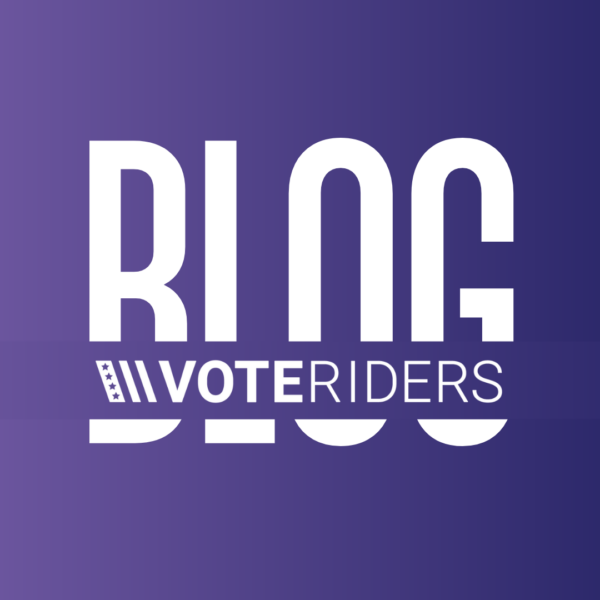
SPL CENTER: Indigenous people face voting obstacles from past and ongoing discrimination
Lori Wise and her husband moved from her home state of Oklahoma to Georgia in 1999, but she did not learn of her paternal Ponca Nation ancestry until 2018, when she discovered the identity of her biological parents and met her biological father for the first time in Oklahoma.
The following year, Wise met the formal requirements to become a federally recognized tribal member and voted for the first time as a “Native American” in the 2020 presidential election. Her federally recognized, Ponca tribal ID card with her photograph should have been proof enough to vote, but she had heard about such tribal IDs being rejected and had read about significant numbers of mail-in ballots in Gwinnett County being thrown out in 2018. So, instead, she used her Georgia driver’s license.
“It was such an important election in 2020 that I didn’t want it to be thrown out,” Wise said. “It meant so much to me to vote in that election, but absolutely I would have preferred to have used my tribal ID. I want people to know that Indigenous people are still alive, still here and have history. Native Americans weren’t really allowed to vote until 1965. With my vote, I am using my voice.”
Indigenous Americans have faced fights over land seizures, citizenship and their very identity for centuries in the U.S. They finally gained the unfettered right to vote with the passage of the Voting Rights Act of 1965 but today face new challenges because of harsh new voter suppression laws enacted in numerous states, particularly Georgia and Florida.
That’s why the Southern Poverty Law Center’s Vote Your Voice program, a partnership with the Community Foundation for Greater Atlanta, is providing grants to grassroots organizations whose work includes support for Indigenous communities in the SPLC’s five Deep South focus states.
In Georgia, grants were awarded in 2023 for program work in 2023-2024 to VoteRiders ($125,000), the New Disabled South ($200,000) and the New Georgia Project ($200,000).
“Since the signing of the Indian Citizenship Act 100 years ago, Native Americans have been fighting for their right to vote,” said Robin Brulé, Vote Your Voice program officer for the SPLC. “Despite attacks on their voting rights, Indigenous leaders continue to focus on getting people to the polls and encouraging the next generation to become more civically engaged.”
Just since the 2020 election – when Democrats won the presidency, retained the House of Representatives and took control of the Senate – 24 states have passed voter suppression laws, and 17 states have passed new or stricter voter ID laws that will be in effect for the Nov. 5 general election. Arizona was the only state with proof of citizenship requirements for some races in 2024, but Louisiana will require documentary proof of citizenship, such as a U.S. birth certificate or passport, as proof of citizenship for voter registration, starting next year.
“The legislative changes after 2020, when the state flipped, have had a big impact and made it much harder to get a mail-in ballot,” said Jenn Hadley, Wise’s daughter and an advocate for transgender rights in Georgia.
Georgia advocates are determined to outmaneuver the new barriers by working in overdrive to educate and register voters of color and create plans to transport them to the polls. Although Indigenous people comprised less than 1% of the state population in 2023, their voting rates have risen nationwide in recent years, prompting activists to increase outreach and support.
“Our work is rooted in a belief that our democracy is richer and deeper when all people are actively involved,” Brulé said.
Path to the ballot
The road to the ballot box for Indigenous people in the U.S. has been long and arduous, one marked by violence and displacement. For centuries, they were viewed as separate – and not equal.
The question of how much self-governance the U.S. government conferred on Indigenous Americans through treaties was hotly contested in the early 1830s. At the time, President Andrew Jackson sought to claim all Indigenous land east of the Mississippi River, forcing the removal of about 50,000 Indigenous people from 25 million acres and resettling them in Western states. After the U.S. Supreme Court ruled in 1832 in Worcester v. Georgia that tribal sovereignty rights took precedence over Georgia’s, Jackson moved ahead with his plan anyway, setting the stage for a form of institutional white supremacy that is still in effect today.
In 1924, Indigenous people gained citizenship but not the right to vote. In 1948, they secured that right, but some states still barred many from voting through voter suppression laws, as they did with many Black Americans in the Deep South throughout the Jim Crow era.
It took the Voting Rights Act of 1965 to give underrepresented populations hope for political power. The act’s Section 2 prohibited practices that deny the right to vote on the basis of race, and its Section 5 pre-clearance provision required states with a history of voter discrimination to obtain U.S. Department of Justice approval before new voting laws or rules could be implemented.
In 2013, however, the Supreme Court ruled in Shelby v. Holder that Section 5 was unconstitutional, clearing the way for new legislative roadblocks to keep people of color from voting.
This only added to the centuries of distrust among Indigenous people.
“The long history of violence, broken treaties and discrimination instills understandable mistrust of U.S. institutions and the voting process among the Indigenous,” said Lauren Kunis, CEO of VoteRiders, a nationwide organization that helps vulnerable populations – including Indigenous Americans, people with disabilities, transgender people and nonbinary people – obtain accepted forms of ID for voting. The organization has over 12,000 volunteers across the country and field offices in eight states, including Florida and Georgia.
Read the full article at The Southern Poverty Law Center.



